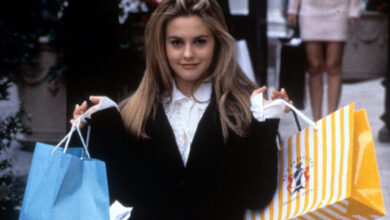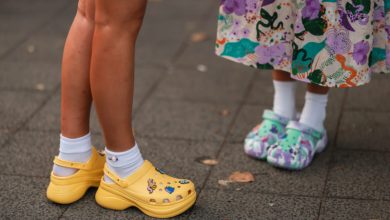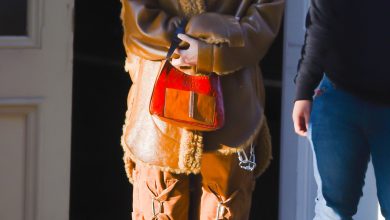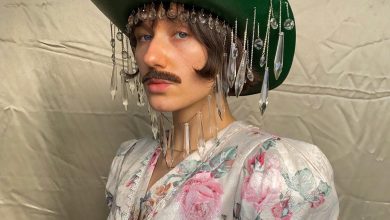Tanya Taylor Canada: CAFA 2021 International Canadian Designer Award
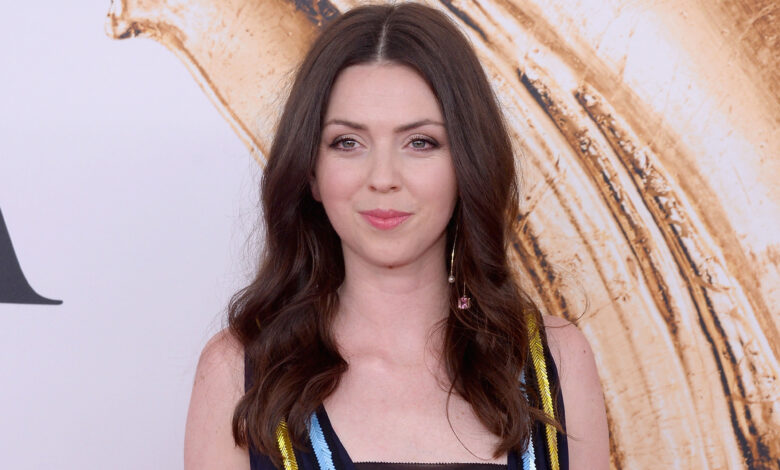
[ad_1]
Ahead of receiving the CAFA 2021 International Canadian Designer Award (and just shy of her company’s 10th anniversary), the Toronto native opens up about her career highs, overcoming self-doubt and paying it forward.
Watching Tanya Taylor grow her fashion label into a lifestyle brand has been like witnessing a flower bloom. Since launching her label in 2012, the New York-based Canadian designer has carved her own path in the industry, taking a stance on matters like offering extended sizing (Taylor expanded her regular size offering to include 0 to 22 in 2017), fostering human connection by hosting luncheons with women leaders, and encouraging political engagement by adding a voter registration Action Button to her website. Recently, she launched Tanya Taylor Mini, a children’s capsule collection of looks that match mom’s.
Just shy of her company’s 10th anniversary, Taylor is being honoured in her hometown of Toronto, where she will receive the CAFA 2021 International Canadian Designer Award. Ahead of the virtual ceremony this evening, we caught up with the designer to talk about growth, finding confidence and fashion post-COVID-19.
How she grew her community
“When I started the brand, I knew I wanted it to be a contemporary price point and I wanted it to have a lot of versatility. Our turning point was really when Michelle Obama started wearing us. It was really interesting because it was at the same time that Beyoncé was wearing us, and Taylor Swift. We started to feel like the brand could speak to a wide range of women and ages, body types, sensibilities about fashion. As the community aspects of the brand have grown, so has the collection. And those two things have really inspired each other. There’s a lot more depth and range now.”
Where she finds creative inspiration
“Over quarantine, our design team really turned to new techniques. We were collaging, we were doing weird DIY ice cube melting, we were just getting really creative with the materials around us. Outside of that, female fine artists are always inspirational to me. I’ve tried to always immerse myself in being able to see new artists and then falling in love with Lee Krasner, Helen Frankenthaler, older artists that have really relevant stories of trying to be inspirational women in times that maybe were less celebratory of female artists.”
Her proudest career moments
“I was able to bring my mom to the White House to meet Michelle Obama which was so cool. It was for the final party that they had in January [2016] before leaving and it was just epic. You had to check your phone at the door, it was a raging dance party and I got to have the time of my life with my mom. It was special. And then moving into our new office a year and a half ago felt like a real steppingstone of being able to build a showroom and have a home for us that I was really proud of.”
The advice she has for her younger self
“I was really nervous, starting out, and really, really anxious and insecure. Jumping into an industry that is scary to start with and where I didn’t know anyone was all of my worst nightmares coming crashing [in]. I’ve had to overcome a lot of social fears. Finding people that bring out your confidence and finding ways to boost yourself is really important in the beginning.”
On receiving the CAFA 2021 International Canadian Designer Award
“This recognition really pushes our team to feel like they can keep building. It’s a nice moment for us after a lot of hard work. My favourite part of this is what it opens in terms of mentorship and helping support younger designers. I really like talking to younger designers who are thinking of entering the industry and explaining my story of not knowing anyone in New York and not knowing anyone in the industry and what it takes, in terms of a lot of hard work and curiosity, to keep going.”
Where she thinks the fashion industry will go post-COVID
“There’s a lot more attention to responsible manufacturing and responsible development, and more attention to the customer and making things that will actually be produced and loved. And that doesn’t take away the art of it. I’m really happy that people took a second to stop making things for things’ sake and really stepped back to make sure their brands look like what they love. And I think that will make the market less duplicative and more signature to the personalities of each brand.”
On Canada’s fashion strengths
“I have a passion for what Canadian manufacturing could look like in the future. There’s such an opportunity for the talent here to have access to creating what they want to create in their backyard. I think that that’s something that down the road should exist and should be supported by the government in some ways. That’s a barrier I hear from a lot of younger designers in Ontario is that they can design something but to produce that outside of Canada is so expensive and they don’t necessarily have the contacts to take that step and hold that amount of investment. I think there’s something there, and that’s a project I’m working on. Canadians have really unique voices. If we can pair that with retail support and manufacturing support, there’s a lot of opportunity.”
[ad_2]
Source link


